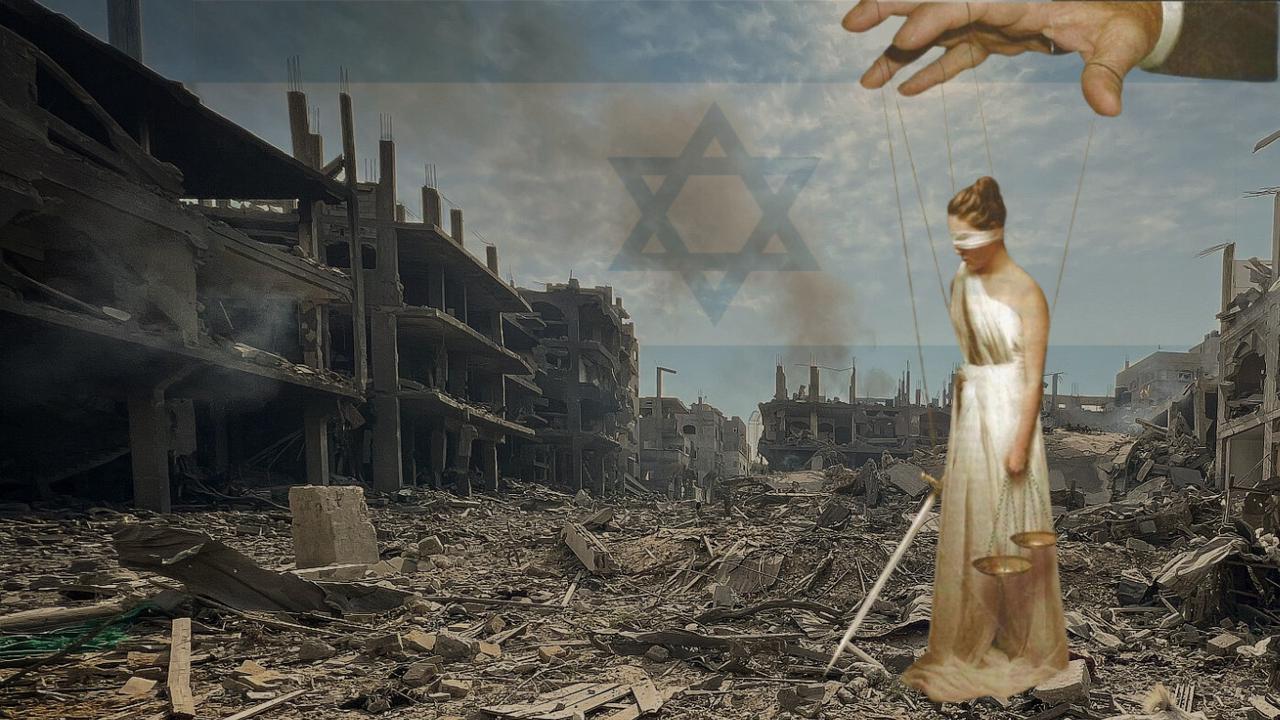Strategizing from 7 cities across the globe
Is Israel at War with the UN?
Since October 2023, about two million Gazans–or over 85% of the population– have been displaced from their homes. The Hamas-run Gazan Health Ministry has recently estimated that 42,000 people have died in Gaza. However, it is difficult to confirm these figures due to the restricted foreign access to the region. U.S. Secretary of State Antony Blinken is working to help the two parties reach an agreement on both a ceasefire and hostage release.
CIVIL SOCIETYWARMIDDLE EASTPOLITICSINTERNATIONAL LAW
John Ghassoub, Sireen Hajaig
11/30/20247 min read


On October 31, 2024, Israel’s Knesset passed two bills banning the 74-year-old organization, UNRWA.
Through voluntary donations, Palestinian refugees are able to receive aid provided by UNRWA. A portion of UNRWA's money comes from the UN's regular budget, which is primarily used for international staffing expenses. Education, health care, relief, and social services, camp infrastructure and improvement, microfinance, as well as emergency assistance—including during armed conflicts—are all included in the Agency's activities. In order to provide direct assistance and work programs for Palestinian refugees, UNRWA was created by UN General Assembly Resolution 302 (IV) of December 8, 1949, following the 1948 War. The Agency started working on May 1, 1950.
The General Assembly has frequently extended UNRWA's mandate, most recently until June 30, 2026, in the absence of a solution to the Palestine refugee crisis.
One of UNRWA's distinctive features is its enduring dedication to a particular population of refugees. Citizens who were normally residents of Palestine between June 1, 1946, and May 15, 1948, and who lost both their homes, are known as four generations of Palestinian refugees who have benefited from the Agency in terms of their welfare and personal growth. Registration is also open to the descendants of male Palestinian refugees, including children who were lawfully adopted.
All residents of UNRWA's operational regions who fit this description are registered within the Agency. If they require aid, they are eligible for UNRWA services. The Agency was addressing the needs of over 750,000 Palestinian refugees when it started operations in 1950. Approximately 5.9 million Palestinian refugees are eligible for UNRWA assistance today.
The Israel Defence Forces (IDF) conducted airstrikes and ground operations in the Gaza Strip after Hamas launched its attack on Israel on October 7, 2023. The location and health state of the more than 100 Israeli and foreign prisoners that Hamas still holds remain unclear, and efforts to rescue them have mostly failed. Since October 2023, about two million Gazans–or over 85% of the population– have been displaced from their homes. The Hamas-run Gazan Health Ministry has recently estimated that 42,000 people have died in Gaza. However, it is difficult to confirm these figures due to the restricted foreign access to the region. U.S. Secretary of State Antony Blinken is working to help the two parties reach an agreement on both a ceasefire and hostage release.
Prior to the war:
Emergency relief:
According to estimates, over a million Palestinian refugees are currently living in abject poverty, meaning that they are unable to meet their most basic dietary demands.
Living under Israel's 15-year air, land, and sea siege has been difficult for Gazans. UNRWA has provided cash-based transfers, medical aid, and food assistance to help improve the situation.
Healthcare:
For over 60 years, UNRWA has provided Palestinian refugees with comprehensive primary healthcare.
There were 22 operating medical facilities in Gaza that offered family planning services, individualised maternal health care, and clinic and laboratory space.
Psychosocial counselors helped the younger residents deal with anxiety, anguish, and depression in a number of Gazan schools and inaugurated special education needs clinics in various health institutions.
Since the war:
Emergency relief:
UNRWA’s ability to deliver relief of any type has been severely impacted. This is not because there isn't any aid available; rather, it's because Israeli authorities have restricted access, making it almost impossible for UNRWA to distribute goods.
In October of this year, Philippe Lazzarini, the Agency's chairman, revealed that around 30 humanitarian trucks were entering Gaza daily, which roughly constitutes 6% of the volume of humanitarian and commercial supplies that were permitted inside prior to the conflict.
Nearly half of the population does not have access to the required 15 litres of water per person per day for drinking, cooking, and hygiene, according to the UN office for humanitarian affairs (OCHA).
Healthcare:
Since October 7, the Israeli military has targeted hospitals multiple times. According to Adele Khodr, a top UNICEF official, the Kamal Adwan Hospital in northern Gaza has recently turned into a "besieged war zone." She stated on Tuesday that "in tents, incubators, and in the arms of their parents, vulnerable newborns and sick and injured children in need of intensive care are being killed." "It is a fundamental crisis of our humanity that this hasn't inspired enough political will to end the war," she later voiced.
In the first round of the interagency polio vaccine campaign, the Agency vaccinated almost 560,000 youths throughout the Strip, and in the second round, about 545,000.
However, thousands still do not have access, and Israel's frequent bombardment and orders for displacement have caused significant delays and challenges.
Despite the extremely dangerous conditions in which they must operate—more than 500 attacks have been carried out against medical personnel, patients, hospitals, and other medical infrastructure—UNRWA has managed to keep eight of its health centers open. Its medical teams have managed to provide approximately 6.2 million primary healthcare consultations in the past year; a significant improvement from last year’s 2.6 million. On October 31, 2024, Israel’s Knesset voted in favor of legislation that would virtually stop UNRWA’s operations in the occupied Palestinian territories. The measure directly targets the UN organization for Palestinian refugees.
Here are five things you should be aware of regarding the bills and the possible outcomes should they become law: Politicians in Israel have long criticized UNRWA, with some accusing its employees of ‘conspiring with Hamas’. Since the Hamas-led assaults on Israel on October 7, 2023, resulted in the deaths of over 1,130 people, the allegations against the Agency—which they have continuously denied—have become increasingly widespread. UNRWA has been criticized by several high-ranking Israeli government officials in recent months; one former ambassador denounced the organization as "a Palestinian organization fully committed to the Jewish State's destruction." One of the lawmakers who supported the legislation was quoted the day before the vote, claiming that UNRWA "is educating kids to hate Israel and spreading antisemitism." Nonetheless, in April of this year, an independent UN evaluation affirmed UNRWA's longstanding dedication to the humanitarian concept of neutrality and found that the Agency's neutrality strategy is more advanced than that of other UN agencies or non-governmental organizations (NGOs). Lazzarini, who also acts as UNRWA’s Commissioner-General, told the Security Council during a briefing this October that despite an "insidious campaign" by Israeli authorities to force the Organization out of Occupied Palestinian Territories, UNRWA is the "backbone" of the entire relief operation in Gaza.
This is where we ask ourselves: what will ensue in gaza? How will Palestinians receive aid? How will Gaza look like post-UNRWA? It is clear that the situation will only deteriorate further following UNRWA’s ban. It is highly predicted for famine and diseases to fester in those times. And while there are many countries and NGOs that provide aid to the Palestinians, UNRWA remains the biggest and most reliable way for Palestinians to receive donations. About 10 days ago, the IPC —also known as the Integrated Food Committee— sent a report made by the Famine Review Committee, in which they divulged the Gazans’ grave situation. They expressed their concern regarding the extreme famine raging in Gaza, most severely in the north. Through a series of chronological hostilities, they attempted to unravel the underlying issues engendering the situation. It all started on October 6, 2024, when the IDF officially declared the north of Gaza a combat zone. Although a U.N. spokesman issued a statement highlighting how most North Gazans couldn’t leave, this also translated to: all people who were stuck there were going to be targets of vicious airstrikes, and anyone who leaves their home would be shot. In other words, they will face death whether within the confinement of their homes or when hunting for whatever food might be left. Israel put a death sentence on all people, innocent or not, in northern Gaza .
Additionally, OCHA’s data revealed that the number of aid shipments has been at an all-time low since the start of the war. On another note, the WFP added that the number of trucks that enter Gaza adds up to 58 a day, a significant decrease since the start of the war. This highlights how the food systems in Gaza have not only deteriorated, but have also collapsed. These developments outline how malnutrition, starvation, and mortality have drastically increased since the start of the war.
Banning the UNRWA has raised a multitude of condemnations everywhere in the world. Starting, of course, with the U.N., whose Secretary-General , Antonio Guterres stated that there are no “alternatives” to UNRWA. He is quickly followed by Lazzarini who emphasizes the worsened state that Gazans are in. Many European states that have previously recognized the existence of a Palestinian State have raised their voices, expressing Israel’s acts against humanity. These countries include Ireland, Spain, and Norway.
It is undeniable that freezing all access to aid is an act of inhumanity. It underlines Israel’s genocidal intent against the Palestinian people, who have been subjected to a complete annihilation of their population. It is also undeniable that October 7 is a symbol of resistance. But did we ever expect it to reach such animosity? Many Israelis claim that October 7 was a second Holocaust , but the Palestinians have been victims of a Holocaust since 1948. They have been slowly nearing their extinction; the hunger, the deaths, the detentions, and the suppression of the news are serving their cruel purpose. It is hell on earth for the Palestinians, who have accepted that the world has given up on them.
References
Council on Foreign Relations. (n.d.). Israeli-Palestinian conflict. Global Conflict Tracker. Retrieved November 20, 2024, from https://www.cfr.org/global-conflict-tracker/conflict/israeli-palestinian-conflict
Integrated Food Security Phase Classification. (2024, November). IPC FRC alert Gaza November 2024. Retrieved from https://www.ipcinfo.org/fileadmin/user_upload/ipcinfo/docs/IPC_FRC_Alert_Gaza_Nov2024.pdf
United Nations. (2024, October 24). UN chief calls for immediate ceasefire in Gaza as humanitarian needs escalate. UN News. Retrieved from https://news.un.org/en/story/2024/10/1156326
United Nations. (2024, November 20). Gaza residents face humanitarian catastrophe amid ongoing crisis. UN News. Retrieved from https://news.un.org/en/story/2024/11/1156606#:~
United Nations Relief and Works Agency for Palestine Refugees in the Near East (UNRWA). (n.d.). Homepage. Retrieved November 20, 2024, from https://www.unrwa.org
Design by Lynn Fanous
